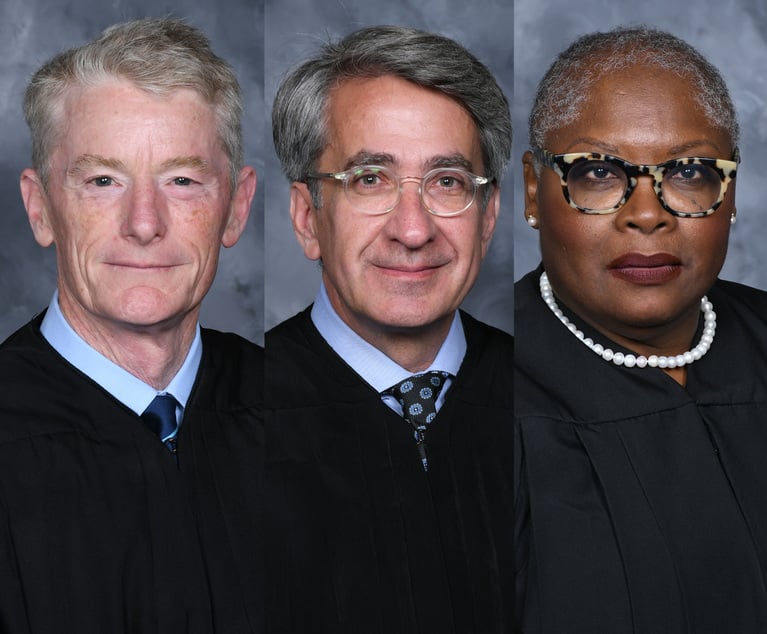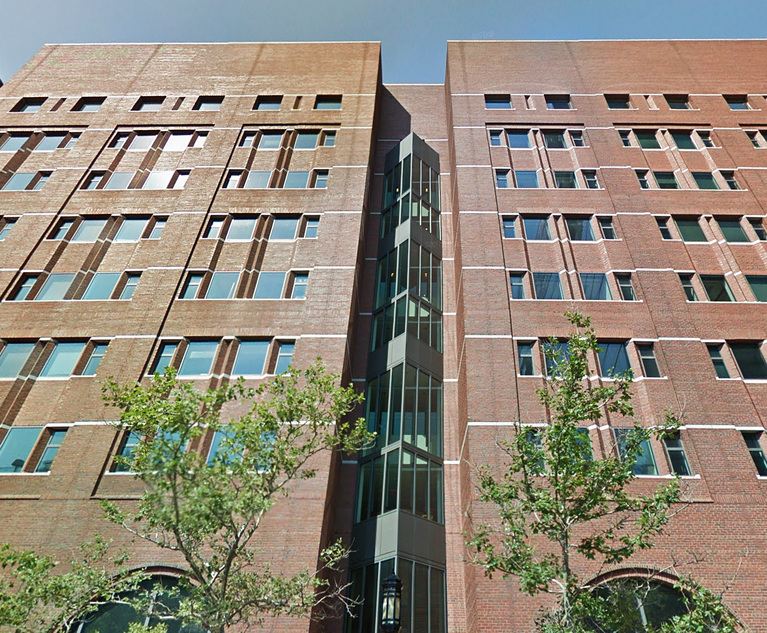A New Jersey appeals court has refused to block the imposition of criminal and civil penalties under Daniel’s Law against a journalist who sought to disclose a public official’s home address.
But the American Civil Liberties Union of New Jersey, which brought the challenge, says it will appeal the ruling to the state Supreme Court.
The appeals court upheld a lower court’s ruling dismissing a constitutional challenge to New Jersey’s version of Daniel’s Law as applied to the potential publication of the address of Anthony A. Caputo, who was New Brunswick’s director of police.
The panel said Charles Kratovil, the publisher of local news website New Brunswick Today, is free to report that Caputo lived in Cape May, but that his precise address is not a matter of public concern.
Application of Daniel’s Law to Kratovil’s case did not infringe his rights of free speech and freedom of the press, it found.
But the ACLU said the court overlooked its obligation to accomplish the goals of Daniel’s Law in a manner that is narrowly tailored.
The dispute stems from a law enacted in 2021 to protect the privacy of judges, police officers and other public officials, following the murder of Daniel Anderl, the son of U.S. District Judge Esther Salas and her husband, Mark Anderl. A disgruntled attorney killed Daniel Anderl and left his father seriously wounded after finding the family’s address online.
Kratovil lawfully obtained Caputo’s full address through an Open Public Records Act request to the Cape May County Board of Elections. After Kratovil stated the street name in Cape May where Caputo was registered to vote during a public meeting in New Brunswick, and provided Caputo’s full address to members of the city council, he received a letter stating that Caputo was invoking his rights under Daniel’s Law to prevent publication of his address.
Kratovil, represented by the American Civil Liberties Union of New Jersey, filed a complaint in June 2023, announcing his plan to publish Caputo’s full address and seeking a declaration that Daniel’s Law was unconstitutional as applied to his intended publication.
Kratovil also sought to enjoin Caputo and New Brunswick from seeking to impose criminal or civil sanctions against him if he published Caputo’s home address.
In September 2023, Superior Court Judge Joseph Rea of Middlesex County denied Kratovil’s request for an injunction against criminal or civil sanctions for publishing Caputo’s address, and he also declined to find Daniel’s Law unconstitutional as applied.
Kratovil appealed, and on Friday an Appellate Division panel of Judges Robert Gilson, Patrick DeAlmeida and Avis Bishop-Thompson affirmed the judge below.
 Alexander Shalom, senior supervising attorney and director of Supreme Court advocacy at the ACLU of New Jersey. Photo: Carmen Natale/ALM
Alexander Shalom, senior supervising attorney and director of Supreme Court advocacy at the ACLU of New Jersey. Photo: Carmen Natale/ALM“We agree with the trial court’s determination that in light of plaintiff’s ability to publish that Caputo lived in Cape May without fear of sanction, he was not entitled to injunctive relief. The trial court’s conclusion that Caputo’s exact street address is not a matter of public concern is supported by the record and consistent with the law,” the appeals court said in an unsigned ruling.
But Alexander Shalom, senior supervising attorney and director of Supreme Court advocacy at the ACLU of New Jersey, who represented Kratovil, rejected that finding.
The Appellate Division’s analysis defies an argument made by the ACLU based on the U.S. Supreme Court’s approach to identifying issues of concern, as stated in Florida Star v. D.J.F., a 1989 case in which a newspaper was sued for identifying a sexual assault victim, Shalom said.
 Vito A. Gagliardi Jr., managing principal of Porzio, Bromberg & Newman. Courtesy photo
Vito A. Gagliardi Jr., managing principal of Porzio, Bromberg & Newman. Courtesy photo“In that case, the court held that rape and violent crime in general is an issue of public concern. Once they made that determination, they didn’t assume the role of editor and say the newspaper is not allowed to publish this specific name. We recognize that that’s the role for journalists and their editors. And the Appellate Division just absolutely ignored that,” Shalom said.
“This isn’t a case where we ask ‘why does Mr. Kratovil want to report this particular fact?’ It’s a case where we say ‘does the government have the right to tell journalists which facts they get to report and which facts they don’t, when the facts are true, related to issues of public concern and lawfully obtained?’ And in this case, the government provided my client with this information, and then threatened him with criminal prosecution for reporting it. And the chilling effect that will have on journalists is dramatic. And that’s why we’re in court fighting,” Shalom said.
The lawyer for New Brunswick and Caputo, Susan K. O’Connor of Hoagland, Longo, Moran, Dunst & Doukas in New Brunswick, did not respond to requests for comment.
Vito A. Gagliardi Jr. of Porzio, Bromberg & Newman, who represented the amicus curiae State Association of Chiefs of Police, said his client is “pleased that the Appellate Division, like the trial court, understood what this case was about. There was no infringement on anyone’s right of free speech here. The plaintiff was free to write the story he wanted about the police director living in Cape May, just so long as he didn’t include his street address in violation of Daniel’s Law. We are gratified that the court agreed that protecting the addresses of our judges and law enforcement officials was a state interest of the highest order.”
 Frank L. Corrado of Barry Corrado Grassi. Courtesy photo
Frank L. Corrado of Barry Corrado Grassi. Courtesy photoFrank L. Corrado of Barry, Corrado & Grassi represented the Reporters Committee for Freedom of the Press and Gannett, publisher of The Record and the Asbury Park Press; Media News Group, publisher of The Trentonian; New Jersey Press Association and New Jersey Advance Media, publisher of The Star-Ledger. He likewise called the court’s ruling an intrusion into the role of the journalist.
“We argued that essentially what court is doing here is injecting itself as an editor, telling newspapers what they can or can’t publish, of information that they obtained lawfully,” Corrado said. “The issue that we were interested in was this notion that if you lawfully obtained a piece of information, you may publish it absent some compelling state interest, (in a )most narrowly tailored way. Frankly, I’m not sure that the decision of the court handed down today satisfactorily addresses that.”








